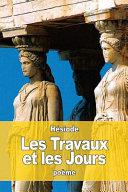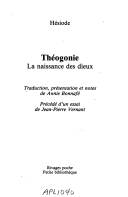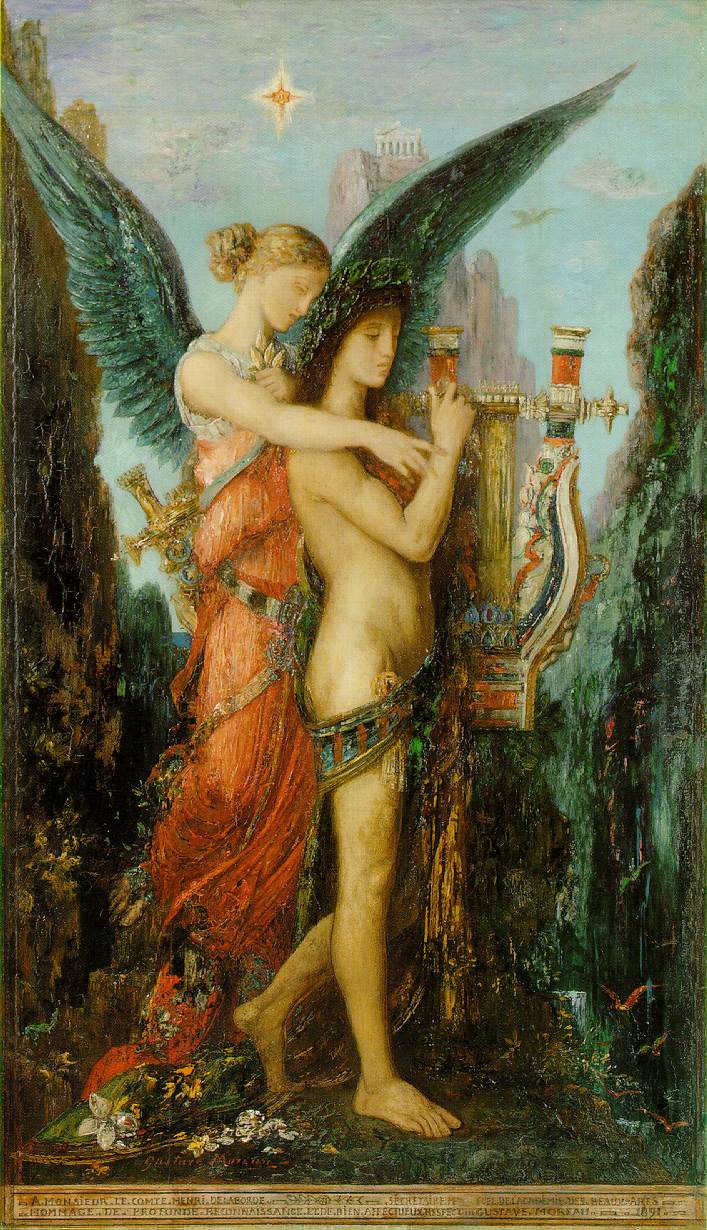Μουσάων Ἑλικωνιάδων ἀρχώμεθ’ ἀείδειν,
La Théogonie
Œuvres

Les Travaux et les Jours
Hésiode
Théogonie
HésiodeHésiode citations célèbres
ἤτοι μὲν πρώτιστα Χάος γένετ’· αὐτὰρ ἔπειτα
La Théogonie
“Qui se fie à une femme se fie aux voleurs.”
ὃς δὲ γυναικὶ πέποιθε, πέποιθ’ ὅ γε φιλήτῃσιν.
grc
Les Travaux et les Jours
“Ne remettez rien au lendemain ni au surlendemain.”
μηδ’ ἀναβάλλεσθαι ἔς τ’ αὔριον ἔς τε ἔνηφι.
grc
Les Travaux et les Jours
ἴδμεν ψεύδεα πολλὰ λέγειν ἐτύμοισιν ὁμοῖα,
La Théogonie
“Le potier en veut au potier, l'aède à l'aède et le mendiant au mendiant.”
Citations raportées, Lysis
τὴν μέν τοι κακότητα καὶ ἰλαδὸν ἔστιν ἑλέσθαι
Les Travaux et les Jours
Hésiode: Citations en anglais
“But he who neither thinks for himself nor learns from others, is a failure as a man.”
Source: Works and Days and Theogony
“Neighbour vies with his neighbour as he hurries after wealth. This Strife is wholesome for men.”
Source: Works and Days (c. 700 BC), line 23.
“Hunger is altogether a meet comrade for the sluggard.”
Source: Works and Days (c. 700 BC), line 302.
“A bad neighbor is a misfortune, as much as a good one is a great blessing.”
Source: Works and Days (c. 700 BC), line 346.
Catalogues of Women and Eoiae 3 (Loeb, H.G. Evelyn-White).
Catalogue of Women or Eoiae
Variant translation: At the beginning of the cask and at the end take thy fill, but be saving in the middle; for at the bottom saving comes too late.
Source: Works and Days (c. 700 BC), line 368 (translated by Hugh G. Evelyn-White).
“The best treasure a man can have is a sparing tongue.”
Source: Works and Days (c. 700 BC), line 719.
“They died, as if o'ercome by sleep.”
Source: Works and Days (c. 700 BC), line 116.
“It will not always be summer, build barns.”
Source: Works and Days (c. 700 BC), line 503.
“The man who trusts womankind trusts deceivers.”
Source: Works and Days (c. 700 BC), line 375.
“Often an entire city has suffered because of an evil man.”
Variant translation: Oft hath even a whole city reaped the evil fruit of a bad man.
Source: Works and Days (c. 700 BC), line 240.
“The generation of the man who swears truly is better thenceforward.”
Source: Works and Days (c. 700 BC), line 285.
“Only when he has suffered does the fool learn.”
Source: Works and Days (c. 700 BC), line 218.
“For in misery men grow old quickly.”
Source: Works and Days (c. 700 BC), line 93.
Variant translation: If thou shouldst lay up even a little upon a little, and shouldst do this often, soon would even this become great.
Source: Works and Days (c. 700 BC), line 361.
